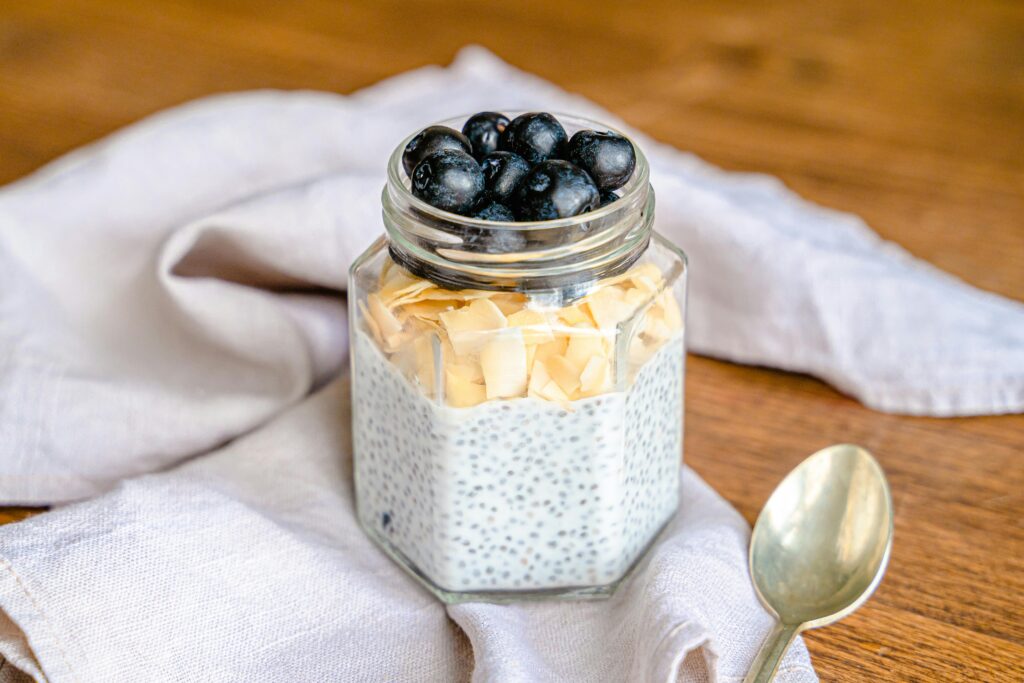Introduction
When it comes to superfoods that stand the test of time, chia seeds have earned a permanent spot in kitchens around the world. Tiny but mighty, these black or white seeds from the Salvia hispanica plant are packed with nutrients, antioxidants, and energy-boosting compounds that were once prized by Aztec and Mayan warriors.
Today, chia seeds are one of the most searched superfoods on Google, thanks to their versatility and incredible list of benefits. Whether you want better digestion, improved heart health, or an easy way to boost your protein and fiber intake, chia seeds are an affordable and natural solution.
In this ultimate guide, we’ll explore 7 science-backed health benefits of chia seeds, their nutritional value, how to use them daily, precautions to consider, and why they remain an evergreen staple for anyone seeking long-term wellness.
What Are Chia Seeds?
Chia seeds come from a flowering plant in the mint family, native to Central and South America. They are oval-shaped, about 2 mm in diameter, and can absorb 10–12 times their weight in water, forming a gel-like consistency. This unique property makes them highly beneficial for digestion and hydration.
For centuries, they were consumed as energy food, known as the “running food” by ancient civilizations. Today, they are recognized worldwide as a nutrient-dense superfood.
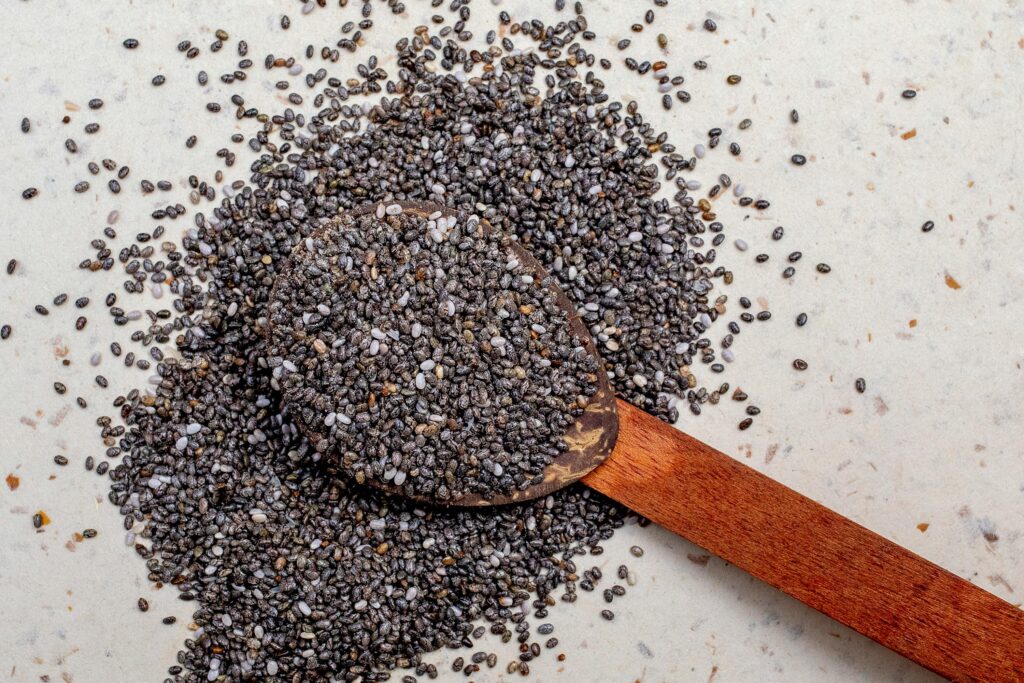
Nutritional Breakdown of Chia Seeds
One of the reasons chia seeds are so powerful lies in their dense nutritional profile.
Per 1 ounce (28g) serving of chia seeds, you get:
- Fiber: 10.6 g (over one-third of daily needs)
- Protein: 4.7 g, including all essential amino acids
- Fat: 8.7 g (5 g omega-3 alpha-linolenic acid)
- Calcium: 179 mg (more than in a glass of milk)
- Magnesium: 95 mg
- Phosphorus: 244 mg
- Manganese: 0.6 mg
- Antioxidants: quercetin, kaempferol, chlorogenic acid
This combination makes chia seeds a nutritional powerhouse, providing essential nutrients in small portions.
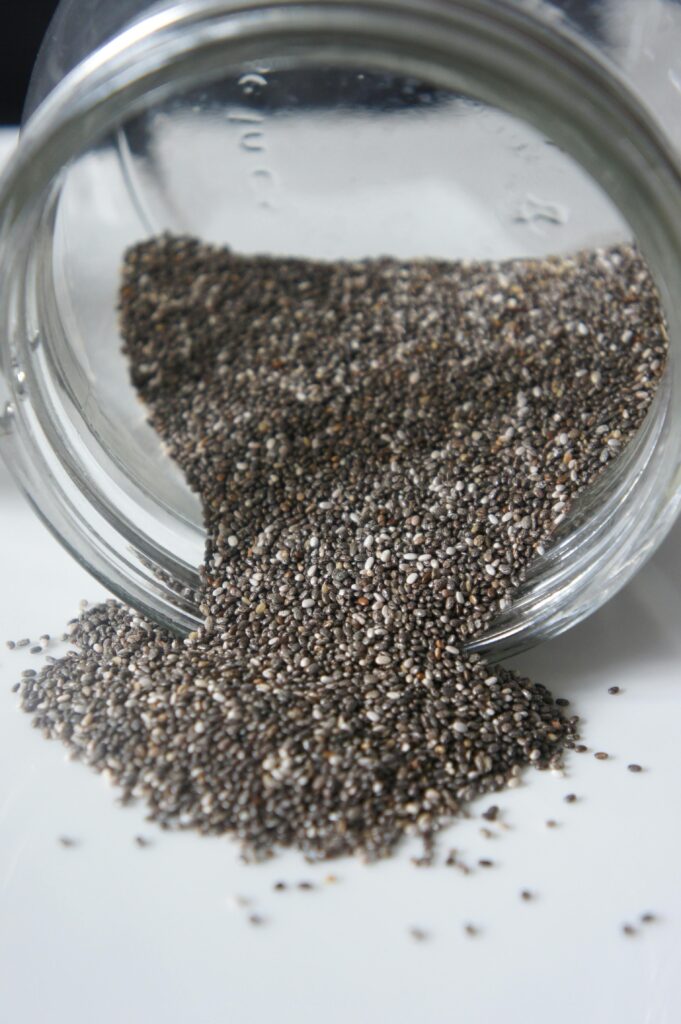
7 Proven Health Benefits of Chia Seeds
1. Heart Health and Cholesterol Support
Chia seeds are rich in omega-3 fatty acids (ALA), which help reduce inflammation and support cardiovascular health. Combined with soluble fiber, they may help lower LDL (“bad”) cholesterol while increasing HDL (“good”) cholesterol.
Research from Harvard Health highlights that regular chia consumption may contribute to lower blood pressure and a reduced risk of heart disease.
2. Improved Digestive Health
With nearly 40% of their weight made of fiber, chia seeds promote healthy digestion and regular bowel movements. The gel they form when soaked slows down the digestion of carbohydrates, helping regulate blood sugar spikes and improving gut health.
According to a review published in the National Library of Medicine, chia fiber can be especially beneficial for constipation relief and overall digestive balance.
3. Weight Management and Satiety
If you’re trying to lose weight or manage cravings, chia seeds are your ally. Their fiber expands in the stomach, increasing feelings of fullness and reducing appetite. In addition, their protein content helps reduce hunger hormones.
Studies suggest that including chia seeds in your diet may support gradual weight loss and improved waist circumference over time.
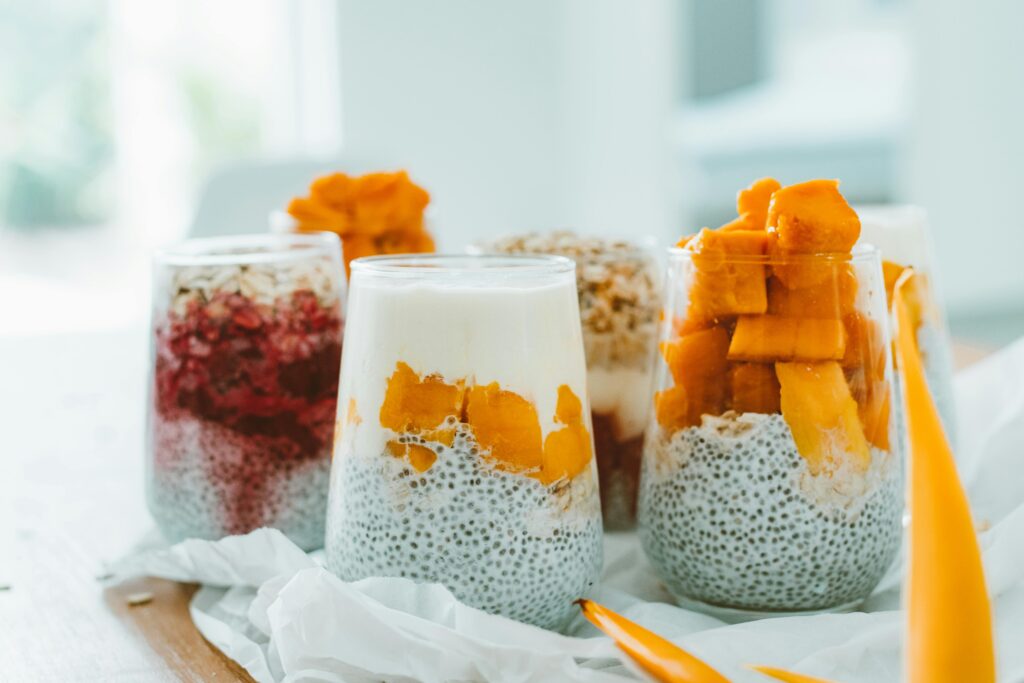
4. Stronger Bones and Teeth
Chia seeds are loaded with minerals that support bone health, including calcium, phosphorus, and magnesium. Just two tablespoons of chia seeds contain more calcium than many dairy products.
This makes them an excellent addition to the diet, especially for those following plant-based or dairy-free lifestyles.
5. Blood Sugar Control
Because chia seeds slow the breakdown of carbohydrates into sugar, they can help stabilize blood glucose levels. This is particularly beneficial for people with type 2 diabetes or those at risk of insulin resistance.
A study published in Scientific Direct found that chia seeds can reduce blood sugar spikes after meals, thanks to their high fiber and omega-3 content.
6. Antioxidant and Anti-inflammatory Effects
Chia seeds are full of antioxidants, which protect the body from free radical damage. These compounds may help slow down aging, reduce inflammation, and support cellular repair.
Antioxidants such as quercetin and chlorogenic acid have been linked to improved immunity and reduced risk of chronic diseases.
7. Skin, Hair, and Gut Synergy
Beyond their internal benefits, chia seeds can also play a role in external beauty and wellness:
- Skin health: Omega-3s support hydration and elasticity.
- Hair growth: Nutrients like zinc and protein nourish the scalp.
- Gut balance: When paired with yogurt, chia supports a healthy microbiome.
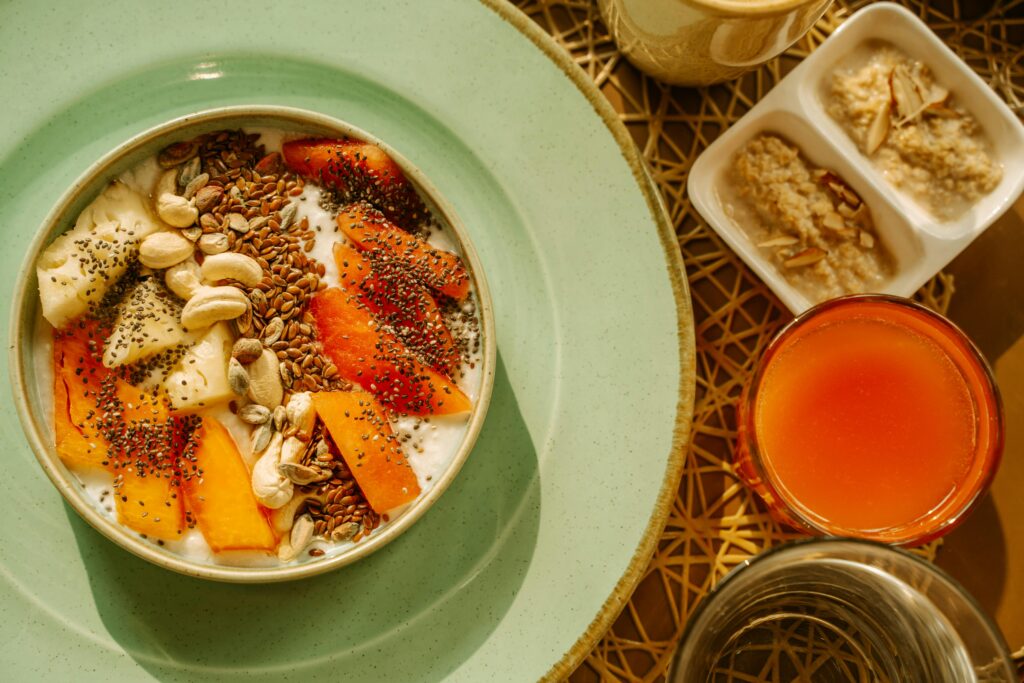
How to Use Chia Seeds Daily
The best part about chia seeds is their versatility. You can easily incorporate them into almost any meal:
- Sprinkle on oatmeal, smoothies, or salads.
- Mix into baked goods like muffins or bread.
- Prepare chia pudding (soak overnight in milk or almond milk).
- Make a chia egg: 1 tbsp chia + 3 tbsp water = egg replacement for vegan baking.
💡 Pro tip: Always soak chia seeds before eating them to prevent digestive discomfort and maximize nutrient absorption.
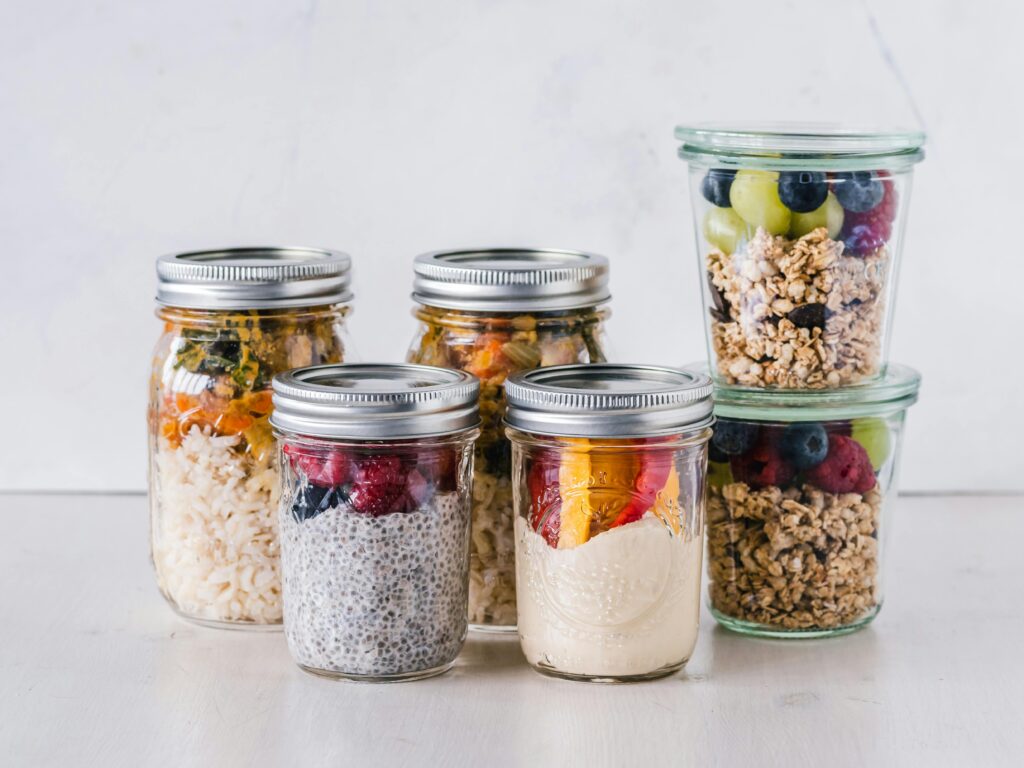
Expert Insights: What Science Really Says
While chia seeds have many promising health benefits, experts caution that they are not a miracle cure. They should be seen as part of a balanced diet alongside other whole foods.
Dr. Priyanka Sethi, a Harvard-trained gastroenterologist, emphasizes that while chia seeds support digestion, heart, and metabolic health, more human studies are still needed to confirm long-term effects.
Trusted sources for further reading:
Precautions and Possible Side Effects
While chia seeds are safe for most people, there are a few considerations:
- Eating them dry may cause choking hazards or digestive issues. Always hydrate them first.
- Too much fiber at once can cause bloating or constipation. Start with 1 tablespoon per day and increase gradually.
- Because they are calorie-dense, moderation is important for weight management.
- People on blood-thinning medication should consult a doctor before adding large amounts of chia seeds.
Frequently Asked Questions (FAQ)
Q: Do I need to grind chia seeds like flax?
A: No. Unlike flax, chia seeds can be digested whole.
Q: How much chia should I eat daily?
A: Most experts recommend 1–2 tablespoons per day.
Q: What’s the difference between black and white chia seeds?
A: Both are nutritionally identical—the only difference is color.
Final Thoughts
Chia seeds are one of the most affordable and effective superfoods you can add to your diet. Packed with fiber, protein, omega-3 fatty acids, antioxidants, and minerals, they support heart health, digestion, bone strength, and weight management—all while being incredibly versatile in the kitchen.
Whether you’re blending them into smoothies, creating delicious chia puddings, or sprinkling them on your breakfast bowl, these tiny seeds can make a big difference in your health journey.
Disclaimer
This article is for informational purposes only and does not constitute medical advice. Always consult with a qualified healthcare professional before making dietary changes, especially if you have pre-existing medical conditions or are taking medications.

